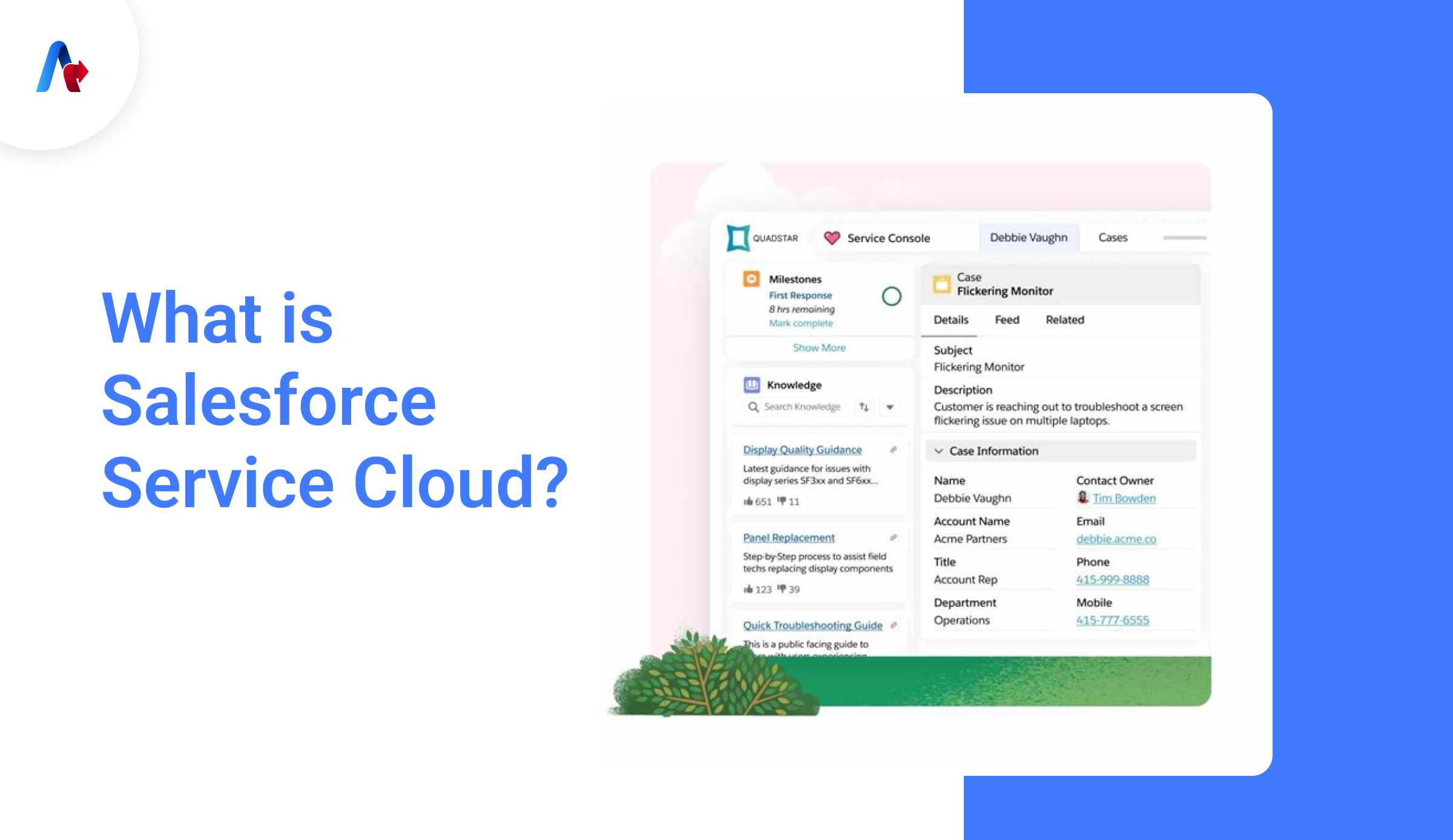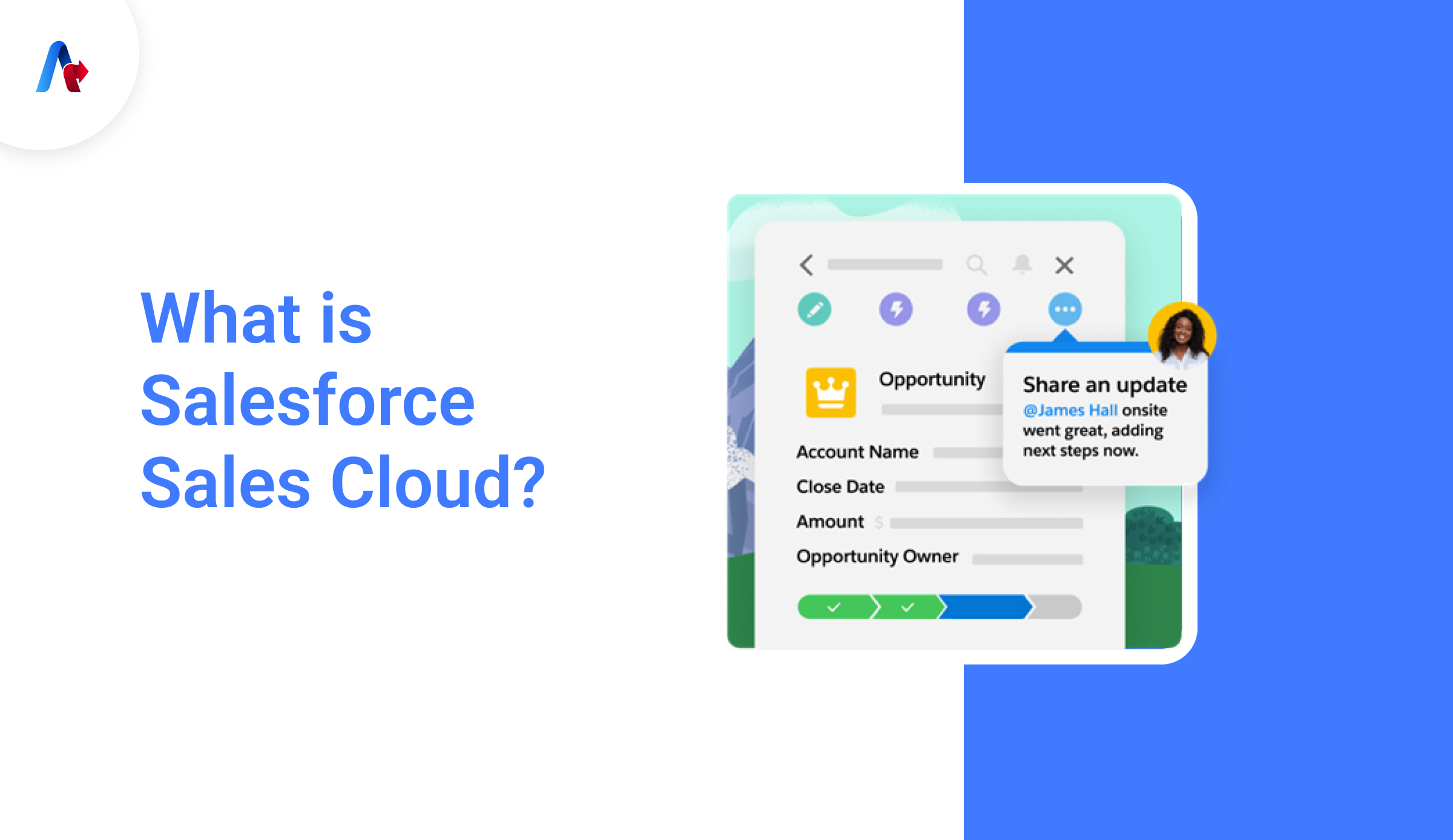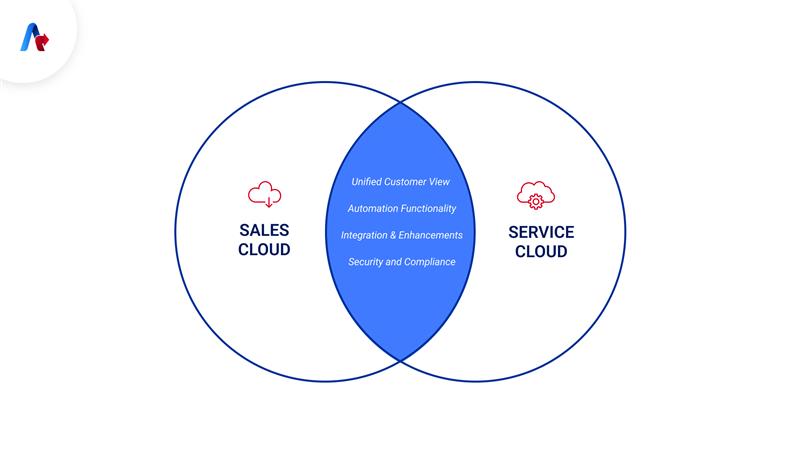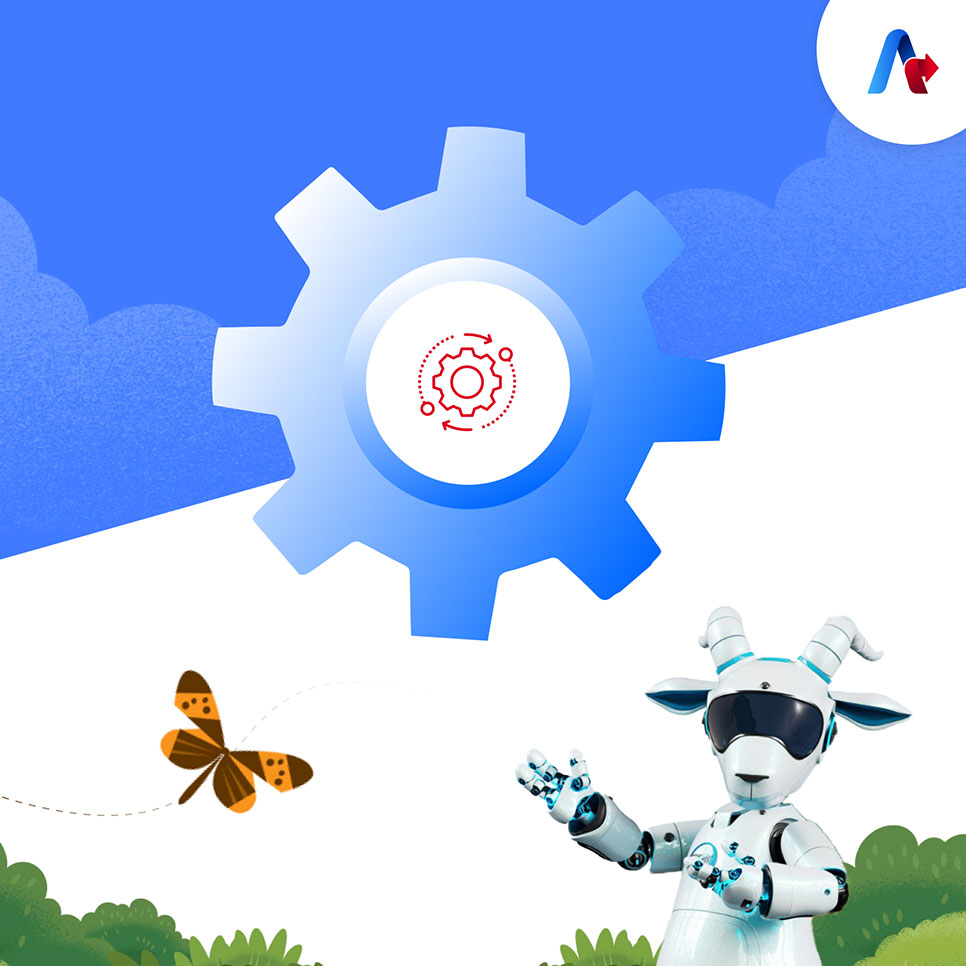Sales Cloud VS Service Cloud
BLOG
6 min read
Salesforce Sales Cloud vs Service Cloud: Finding the Right Fit for Your Business
Delivering efficient and effective solutions are the top two end goals for every business, and having the right CRM makes all the difference in the business's success. Salesforce, the global CRM leader known to take any business to new heights, provides tailored solutions that cater to various business needs. If you are already a Salesforce user, you are in the top position to outperform the competition with the variety of Salesforce offerings. Salesforce Sales Cloud and Salesforce Service Cloud are the two most popular platforms used for specific business needs.
Sales Cloud is an application that helps companies manage and automate sales processes.
Salesforce brought in $7.58 billion in fees related to Sales Cloud in 2024. That’s 23.3% of total subscription and support revenues.
Service Cloud is a service management platform that helps companies deliver personalized customer service.
Salesforce generated $8.25 billion from revenue related to Service Cloud in the 2024 fiscal year. This denotes a overall increase of 11.89% over previous year.
While being interconnected for the goal of customer these platforms share many similarities but what makes them unique is their distinct features.
We have curated this blog to help you find more about which platform fits well to your business needs. Starting from exploring what Salesforce Sales Cloud Salesforce Service cloud mean to finding commonalities and differences. Let’s get started!
What is Salesforce Service Cloud?

Salesforce Service cloud is more focused on customer relationship building and satisfaction goal. The platform is designed to support service teams manage customer cases and any kind of service requests seamlessly. Top tools and features include service analytics, case management and more with the sole purpose of guiding businesses in retaining customers and building long term loyalty.
Now that you have understood what service cloud means let’s talk about unique features of it!
- Case Management: Automated management and resolution to customer queries is one of the top features of the service cloud.
- Omni-channel Support: With this feature you get unified access to multiple communication channels, so you have everything on your fingertips.
- Knowledge Base: Service cloud is built in with an easily accessible repository of queries and solutions to most popular concerns.
- Service Analytics: Tools to monitor and analyze customer service performance to improve service delivery.
What is Salesforce Sales Cloud?

Salesforce Sales Cloud provides a comprehensive overview of customers including details like Activity history, Key contacts, Customer communication, Internal account discussions and more. It is designed to automate many of the tasks, give sales reps centralised customer view so they can focus on what they do best- Generate best leads!
Now that you have understood what Salesforce sales cloud means, let’s talk about unique features of it!
- Lead and Opportunity Management: The foundation of the sales funnel starts with finding potential leads, tracking all interactions and managing them effectively.
- Sales Forecasting: Advanced analytics and forecasting tools to predict sales trends and set accurate targets.
- Email Integration: Seamless integration with email platforms to streamline communication.
- Reports and Dashboards: Customizable dashboards and detailed reporting capabilities to gain insights into sales performance.
Looking to adapt Salesforce to meet your business's evolving needs?
Contact UsSales Cloud & Service Cloud – What Functionalities Do They Share?

Sales Cloud and Service Cloud are two main heroes of the Salesforce. But can you them together? Or either one of them is perfect for you? Let’s find the answers. Despite their different focuses—Sales Cloud on sales processes and Service Cloud on customer support—interestingly they share several common features and functionalities.
Unified Customer View
First feature Sales Cloud and Service Cloud share in common include complete view of each customer. With functionalities like tracking customer interactions, history, and profiles, enabling teams to access comprehensive insights about each customer they assist both sales and service teams in making informed decisions based on up-to-date customer information.
Integration and Enhancements
Both platforms have great support with third-party apps via Salesforce AppExchange to enhance CRM capabilities when required.
Automation Functionality
Time consuming tasks such as lead scoring, follow ups, case categorisation and escalation are all automated under salesforce automation capability.
Security and Compliance
With a solid foundation from the world’s largest CRM providers, both Sales Cloud and Service Cloud maintain rigorous security standards, ensuring data is securely handled and compliant with relevant regulations. Salesforce's comprehensive security features protect sensitive information across both platforms.
Sales Cloud vs Service Cloud? What To Choose?
In this section, we have created a simplified table outlining the differences between Sales Cloud and Service Cloud based on some major distinguishing factors.
| Basis of Differentiation | Sales Cloud | Service Cloud |
|---|---|---|
| Purpose | Designed to enhance sales processes by managing leads, opportunities, and customer relationships, ultimately driving revenue growth | Focused on delivering exceptional customer support and service by streamlining case management and customer engagement |
| Key Features |
|
|
| Intended Users | Sales representatives, sales managers, and marketing teams aiming to optimize sales workflows. | Customer service agents, support teams, and service managers focusing on enhancing customer satisfaction. |
| Customization | Offers extensive customization to align with various sales processes and business models. | Provides customization options tailored to customer service workflows and integration needs. |
| Pricing |
Pricing varies based on the edition:
|
Pricing varies based on the edition:
|
Want to transform your business with Salesforce Sales & Service Cloud?
Contact us to get startedSailing the Way with the Right Choice
If your focus is improving sales process and help sales team with seamless lead management funnels Salesforce Sales cloud would be your ideal solution. If your focus is to build stronger customer relationships and you want to track all customer interactions Salesforce Service cloud would be your ideal solution.
For a truly level up customer experience at every stage of their journey combine the powerful capabilities of both these platforms. Looking forward to selecting one of them and confused what will suit your specific use case? Trusted Salesforce partner can pave your way to truly accelerate.


